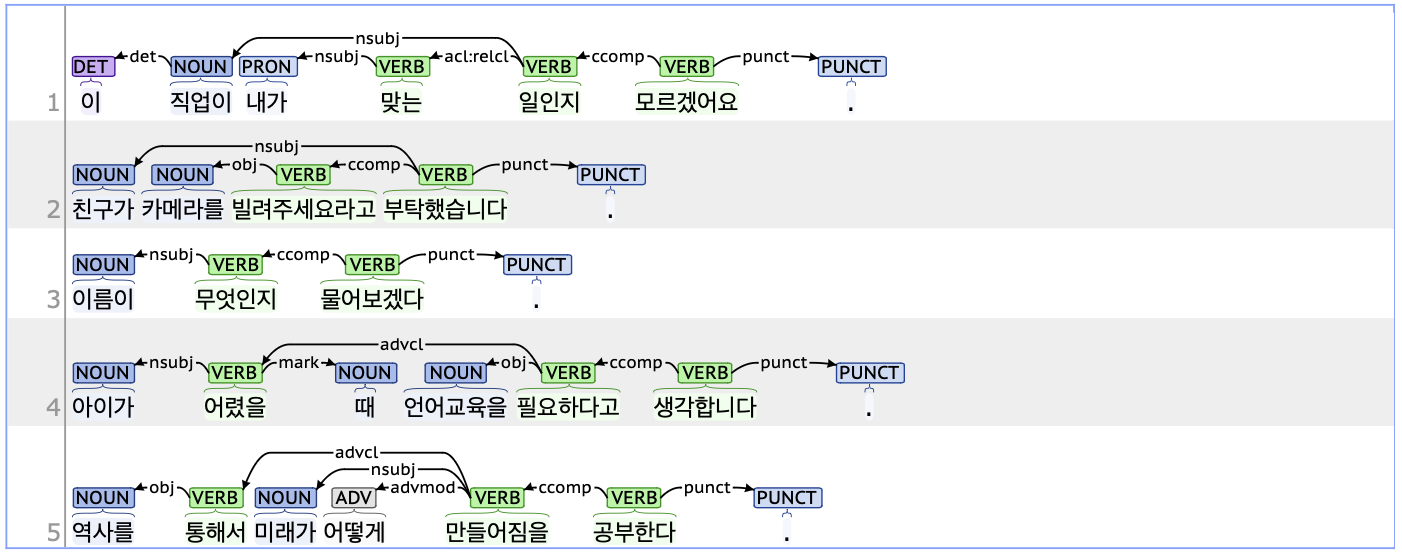ccomp: Clausal complement
Definition
ccomp refers to a clausal complement that functions as a core argument within a sentence, excluding the subject.
Characteristics
- The ccomp tag is typically used to parse the predicate of a clause that functions as an essential component of the sentence, such as an object or quotation.
- In clauses indicating quotations, the ccomp tag is often composed with JKQ (Postposition_quotative, 인용격 조사).
- Examples:
- 이 직업이 내가 맞는 일인지 모르겠어요.
- 친구가 카메라를 빌려 주세요 라고 부탁했습니다.
Boundary cases and clarifications
Differences with related tags
- ccomp vs. csubj (Clausal subject):
- Both ccomp and csubj lead clauses that function as core arguments within a sentence.
- The main parts of a sentence depend on its structure, but the subject is always important. If a clause is necessary for the sentence, the predicate is tagged as csubj if it acts as the subject. If it doesn’t act as the subject, it’s tagged as ccomp.
- ccomp: 이름이 무엇인지 물어보겠다.
- csubj: 처음에 한국어를 발음하기가 어려웠다.
Examples
